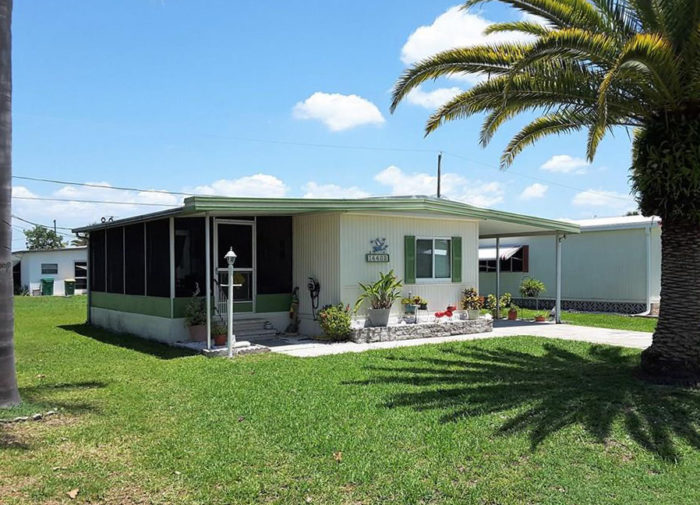
Image Credit: Program Realty
The typical green home featured on GBA is a single-family home in a suburb or rural area. This type of development — often called “sprawl” — is decried by environmentalists and urban planners, who instead sing the praises of multifamily buildings in dense urban neighborhoods.
If you are a greenie who now lives in a suburb or rural area, where is the best place to move to? In this essay, I’ll examine several options.
Option 1: Stay put
You may decide to stay where you are, accepting the contradictions of life. All of us fall short of the ideal promoted by environmental purists, so it’s sometimes OK to accept our imperfections.
Even if you live in a single-family suburban home, you can still focus on lowering your energy use, including the amount of fuel used for transportation.
Option 2: You could move downtown
From an environmental perspective, the greenest place to live is in an urban area. If you can afford the rent, choose a small apartment in a multifamily residential building in a high-density neighborhood.
One of the main advantages of living in a city is that you can take advantage of public transit systems — subways or busses — or you can get around easily on a bicycle.
Option 3: Move to a “green” development
Many suburban developments claim to espouse green principles. Whether this represents a significant improvement over conventional suburban development or just amounts to greenwashing depends on your point of view and the specifics of the development.
An example of the type of development I’m talking about is the Serenbe development in Chattahoochee Hills, Georgia. Of course, there is no guarantee that homes in this type of development are affordable; recent home listings at Serenbe range from $359,000 to $849,000.
Even if a suburban development calls itself “green,” residents may still…
Weekly Newsletter
Get building science and energy efficiency advice, plus special offers, in your inbox.

This article is only available to GBA Prime Members
Sign up for a free trial and get instant access to this article as well as GBA’s complete library of premium articles and construction details.
Start Free TrialAlready a member? Log in





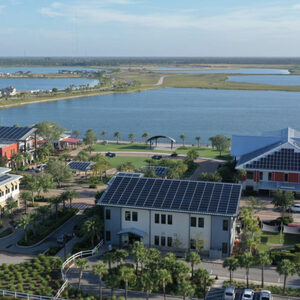
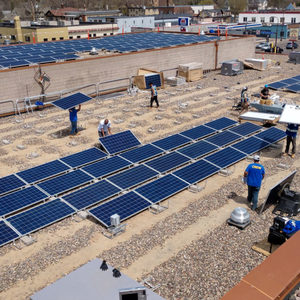
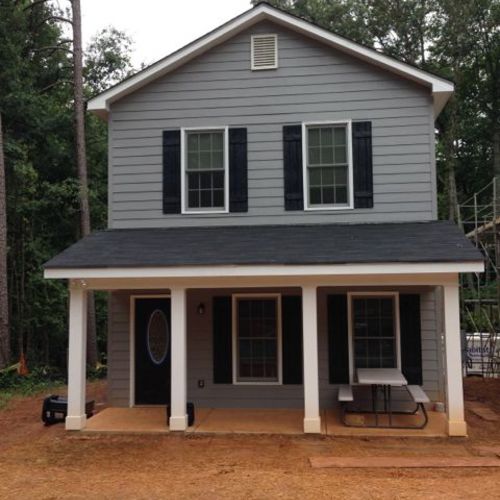
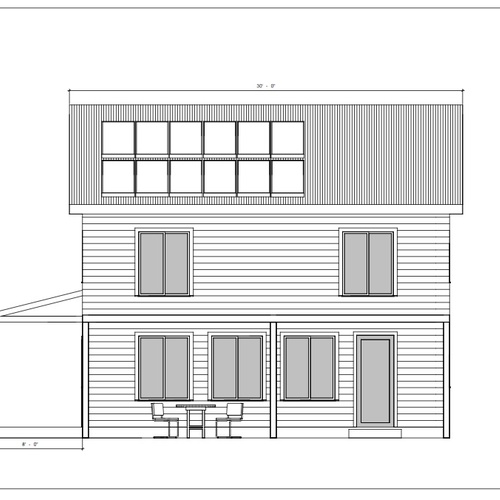






10 Comments
On the edge
Without a cutting edge, a sword is but a club.
GBA contributes to the betterment of all construction.
New houses will be built.
Houston now has an opportunity to rebuild itself much better than before.
A 1/4 acre is too small.
A homeowner's perspective differs from that of a builder
Mark,
This article is written from a homeowner's perspective -- specifically, from the perspective of a homeowner who wants to reduce his or her environmental footprint.
Builders have a different perspective, as you correctly point out. Builders who are on the cutting edge -- aiming to perfect low-energy designs -- benefit the construction industry, and GBA will continue to trumpet the accomplishments of cutting-edge builders.
Whether a family needs an acre, a half acre, a quarter acre, or much less land for a decent dwelling depends on many factors, as I'm sure you know.
I'm sure that your prediction that Houston will "rebuild itself" is correct. Even the neighborhoods that should rightly be abandoned will probably be rebuilt, for better or worse.
Aging trailer parks, in-place updating? / Cohousing example
In State College PA two large manufactured housing communities closed down and the land now sits idle. Both of those trailer parks were near bus lines, shopping, etc. Here is an article about one: http://www.centredaily.com/news/article42847851.html
Perhaps these communities could have been upgraded to "tiny houses" or newer more energy efficient trailers versus wholesale bulldozing? Are there precedents elsewhere for such an in-place redevelopment?
**
Chuckled at the discussion of green cohousing communities in "left-wing university towns". We have one in my township, Julian Woods. http://www.ic.org/directory/julian-woods-community/ Yes, just 15 minutes from Julian Woods to Penn State's main University Park campus.
I still remember the first time I ventured into the Julian Woods community to visit a woodworker's shop. He assured me that it wasn't a mysterious "commune" as "we" (other local residents) kinda thought it was. A few years later I now know a few different families there, which has in turn connected me to other interesting and wonderful folk in our area. Wish I had gotten to know all earlier!
Response to Andrew Baker
Andrew,
Everyone knows that old trailers (or old manufactured homes) are often leaky and poorly insulated. And everyone knows that old trailers are vulnerable to damage during a tornado.
But these homes are relatively small, so some residents of so-called "trailer parks" have lower utility bills than wealthy people who live in large, energy-efficient homes.
You're right that the "trailer park" model can potentially be adapted to more energy-efficient types of housing.
Cohousing
If you want to learn more about cohousing go to http://www.cohousing.org. There is a good definition on their site and they also have a great list of many of the built and forming communities in their directory (sorted by region). As someone who specializes in the design of cohousing communities and has lived in one for 24 years, I found Martin's claim that cohousing exacerbates segregation a little simplistic. Our community has regular public concerts and events and if you look at who we bring in through outreach, friends, guests, and extended families, we are not so different than the demographic of our diverse university town. And we even have some curmudgeons. Cohousing specifically designs for privacy within the home and community at the doorstep.
Living in an Earthship in the desert and other paradoxes
I was confronted by your main point first hand when I went out to New Mexico for a while and found myself living "off the grid" in the middle of the desert. I then found myself driving 30 miles each way to work (or to do anything else) and suddenly realized that while my house was "off the grid" I was very much a consumer of oil, and that being "off grid" necessarily implied a level of inconvenience that necessitated copious driving. Upon realizing this, I found a reasonably sized Rastra block attached condominium, from which I could walk everywhere I needed to go on a daily basis. Though I have never done the calculations, I believe that I used a fraction of the fossil energy on a per diem basis than I had been previously. Moving hunks of metal around is quite energy intensive.
Response to User-6818734 (Comment #5)
User-6818734,
Thanks for sharing your direct experience of co-housing communities. I'm glad to hear that there is room for curmudgeons in such places!
Response to Ethan T (Comment #6)
Ethan,
You are right that many Americans consume more energy for transportation than they do in their homes. For more information on this issue, see Houses Versus Cars.
Trailer Park / Modular Homes
This is a company producing very low energy and zero net cost homes in California. I have no connection to the company, just citing it as an example of how we might imagine a ZNE trailer park.
http://modularlifestyles.com/
Zero net cost?
Bill, I assume you mean zero net energy. Zero net cost would be an option that I think many people would be interested in as well, if there is a way to do that.
Log in or become a member to post a comment.
Sign up Log in